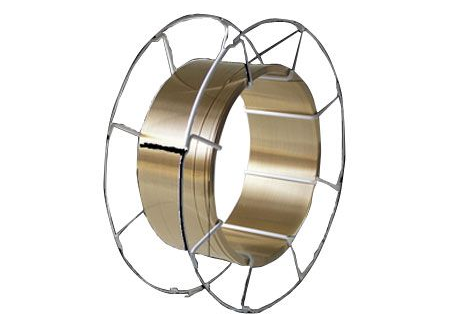Copper alloys are widely recognized for their excellent combination of mechanical, physical, and chemical properties. These alloys are created by combining copper with other elements, such as zinc, tin, aluminum, nickel, and more, to enhance specific characteristics and create a wide range of materials suitable for various applications. In this article, we will explore the diverse uses and applications of copper alloys.
Electrical and Electronics:
Copper alloys find extensive use in the electrical and electronics industry due to their exceptional electrical conductivity. The most common copper alloy used in this sector is brass, which is an alloy of copper and zinc. Brass is utilized for manufacturing electrical connectors, terminals, switches, circuit breakers, and various other electrical components. Its excellent conductivity, along with its corrosion resistance, makes it ideal for these applications. Copper alloys are also employed in the production of wiring, cables, bus bars, and printed circuit boards (PCBs), owing to their superior electrical and thermal conductivity properties.
Architecture and Construction:
Copper alloys have been utilized in architecture and construction for centuries due to their appealing appearance, durability, and corrosion resistance. Brass and bronze, which are copper alloys with zinc and tin, respectively, are frequently used in decorative elements, such as door handles, hinges, handrails, and architectural accents. Copper alloys are also used for roofing, gutters, and downspouts, as they develop an attractive patina over time, providing a unique aesthetic to buildings. Additionally, copper alloys are employed in plumbing systems, valves, fittings, and heat exchangers due to their excellent corrosion resistance and antimicrobial properties.

ERCuMnNiAl
Marine Applications:
The marine industry extensively employs copper alloys due to their resistance to corrosion in saltwater environments. Brass and bronze are commonly used in marine applications, including propellers, ship fittings, valves, and piping systems. These alloys' resistance to corrosion ensures longevity and reliability in harsh marine conditions. Furthermore, copper-nickel alloys, such as cupronickel, are used for seawater cooling systems, heat exchangers, and condensers due to their excellent resistance to biofouling and corrosion.
Automotive and Transportation:
Copper alloys play a vital role in the automotive and transportation industries due to their excellent heat transfer, corrosion resistance, and mechanical properties. Brass and bronze alloys are used in various automotive components, including radiator cores, heat exchangers, connectors, bearings, and bushings. Their ability to withstand high temperatures, as well as their durability and wear resistance, makes them suitable for these applications. Copper alloys are also employed in electrical wiring systems, terminals, and connectors, taking advantage of their excellent conductivity.
Industrial Equipment and Machinery:
Copper alloys are utilized in a wide range of industrial equipment and machinery applications. Brass and bronze alloys are commonly found in pump components, valves, fittings, and hydraulic systems due to their corrosion resistance, high strength, and machinability. These alloys can withstand challenging operating conditions, including high pressures and aggressive chemicals. Copper alloys are also used in gears, bearings, bushings, and various mechanical components where low friction, high wear resistance, and dimensional stability are crucial.
Medical and Healthcare:
Copper alloys are employed in medical and healthcare applications due to their antimicrobial properties. Copper-nickel alloys, such as C70600 and C71500, are commonly used in medical gas distribution systems, sterilization equipment, and components for surgical instruments. These alloys help minimize the risk of bacterial contamination and are resistant to the formation of biofilms. Copper alloys are also utilized in dental instruments, implants, and orthodontic braces due to their biocompatibility, strength, and corrosion resistance.
Aerospace and Defense:
Copper alloys find essential applications in the aerospace and defense industries. Aluminum bronze alloys are used for aircraft landing gear bushings, bearings, and hydraulic components due to their high strength, fatigue resistance, and corrosion resistance. Copper-nickel alloys, such as Cu-Ni 90/10 and Cu-Ni 70/30, are employed in marine and submarine applications within the defense sector due to their exceptional resistance to seawater corrosion and biofouling. These alloys are utilized for seawater piping systems, heat exchangers, condensers, and other critical components.
Conclusion:
Copper alloys offer a wide range of advantages, including excellent electrical conductivity, corrosion resistance, durability, and antimicrobial properties. Their versatility makes them suitable for numerous applications across various industries. From electrical and electronics to architecture, marine, automotive, industrial, medical, and aerospace sectors, copper alloys play a significant role in enhancing performance, reliability, and longevity of diverse products and components. The ongoing development and utilization of copper alloys continue to contribute to technological advancements and the improvement of various industries.






